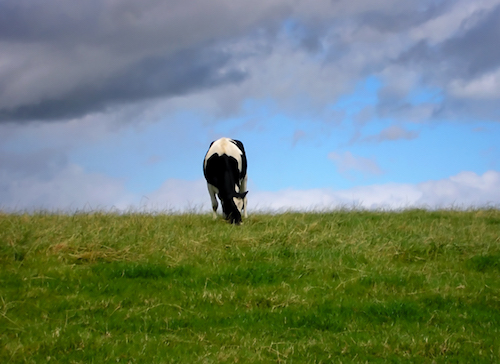 Culture & Ethics
Culture & Ethics
Cow Cloning Disaster Is a Warning Against Human Cloning

Dolly the sheep was manufactured in 1996 to open the way for cloned “transgenic” animal herds — that is, cloned sheep containing a few human genes so they exude useful medical substances in their milk.
Dolly died young, perhaps because she was cloned. But the approach continued.
Now, in New Zealand, the manufacture of cloned transgenic cows has proved a disaster. From the Radio New Zealand story:
[The study] authored by Claire Bleakley, president of GE Free New Zealand, who told Morning Report that the animals were suffering inordinately from chronic illness, unexplained deaths and severe deformities as a result of the foreign DNA inserted into the embryos…
Of the 60 cows, 14 are still alive. GE Free said the deformities have included animals born with no bladder, club feet and fused necks, many of whom lived for only a few hours.
The group said it got the details through Official Information Act requests to AgResearch and from the Crown institute’s own reports.
Dr David Wells, a principal scientist in the reproductive team at AgResearch, said that there were issues, but that the work was promising. “We acknowledged that there are animal welfare concerns with the current technology — rather the methods we’ve used to generate those embryos. Many of the deformities that have incurred [are due to] incorrect programming. “Through cloning, they are occurring at a higher incidence,” he told Morning Report.
The (often, but not always) bad results with animal cloning and transgenic methods raise very important questions of animal welfare. The need for manufacturing these animals would not seem to justify the suffering apparently being caused.
But the transgenic cow cloning disaster is also a warning to not clone human beings — which hasn’t yet advanced beyond the manufacture of a few early embryos. The time to outlaw human cloning is now. It is wrong to make human life through manufacturing means.
As for the need for research: Scientists have discovered ethical ways for obtaining person-specific, tailor-made pluripotent stem cells that can be used in experiments and in creating organ tissues for important uses like drug testing — making the once-touted “need” for therapeutic cloning (as it is sometimes called) less than acute.
If we don’t stop cloning now, it will eventually become more feasible, hastening the coming of Brave New World. That includes the transgenic manipulation of genomes desired by transhumanists to allow them to become “post-human.”
Image credit: Macieklew (Own work) [CC BY 3.0], via Wikimedia Commons.
